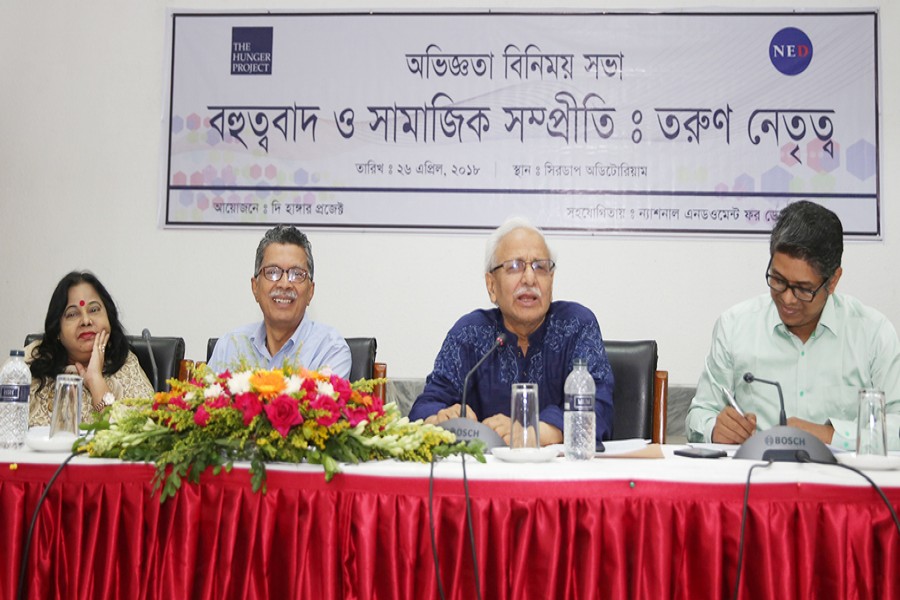
Published :
Updated :

Sixty per cent of youths feel that a person of a particular religion should not participate in festivals of other religions or take food during that time while 50 per cent think violence is allowed to protect one's one religion, reveals a survey.
Besides, 64 per cent of youths believe that women should not be involved in any type of social conflict.
Fifty-eight per cent youths feel more comfortable working alone than working in a group.
The survey concluded that proper intervention, engagement of elected representatives, community and civil society can play an effective role in attitude and behavioral change of the young people.
Findings of the study were made public at a roundtable discussion on 'Building Youth Leadership for Pluralism and Social Harmony' organised by the Hunger Project at CIRDAP Auditorium in the city on Thursday.
The Hunger Project global vice president and country director Badiul Alam Majumder chaired the discussion.
Former ambassador Humayun Kabir was present as the chief guest.
The baseline survey was conducted on 331 youths in June 2017 on values, tolerance, identity-based prejudice, pluralism and leadership.
The end line survey was conducted on 331 old and 347 new youths aged between 18 and 35 years.
In both the surveys, the male and female ratio was 50:50.
The baseline survey also showed that 89 per cent of the youths believe Bengali New Year or Pahela Baishakh is a universal festival irrespective of religion while 94 per cent of them said dialogue can resolve any conflict in society.
After strategic intervention like four-day 'Ethical Leadership and Skills Building' training to 180 youths with 33 per cent female participants and e-learning course to 233 youths, significant change has been noticed.
After one year of intervention, it was found that those 50 per cent who said violence is allowed to protect religion declined to 17 per cent.
Those 60 per cent who said one belonging to any specific religion should not participate in festivals of other religions declined to 41 per cent.
Badiul Alam Majumder said Pakistan was created based on religious identity while Bangladesh came into being based on Bangladeshi national identity.
But after the creation of Bangladesh, it seems religious fundamentalism is rising again in the country. "Our motto for creating Bangladesh was pluralism, non-communalism, cohesion, peace, inclusiveness. The present rising fundamentalism is completely conflicting with these basic principles," he said.
msshova@gmail.com


 For all latest news, follow The Financial Express Google News channel.
For all latest news, follow The Financial Express Google News channel.